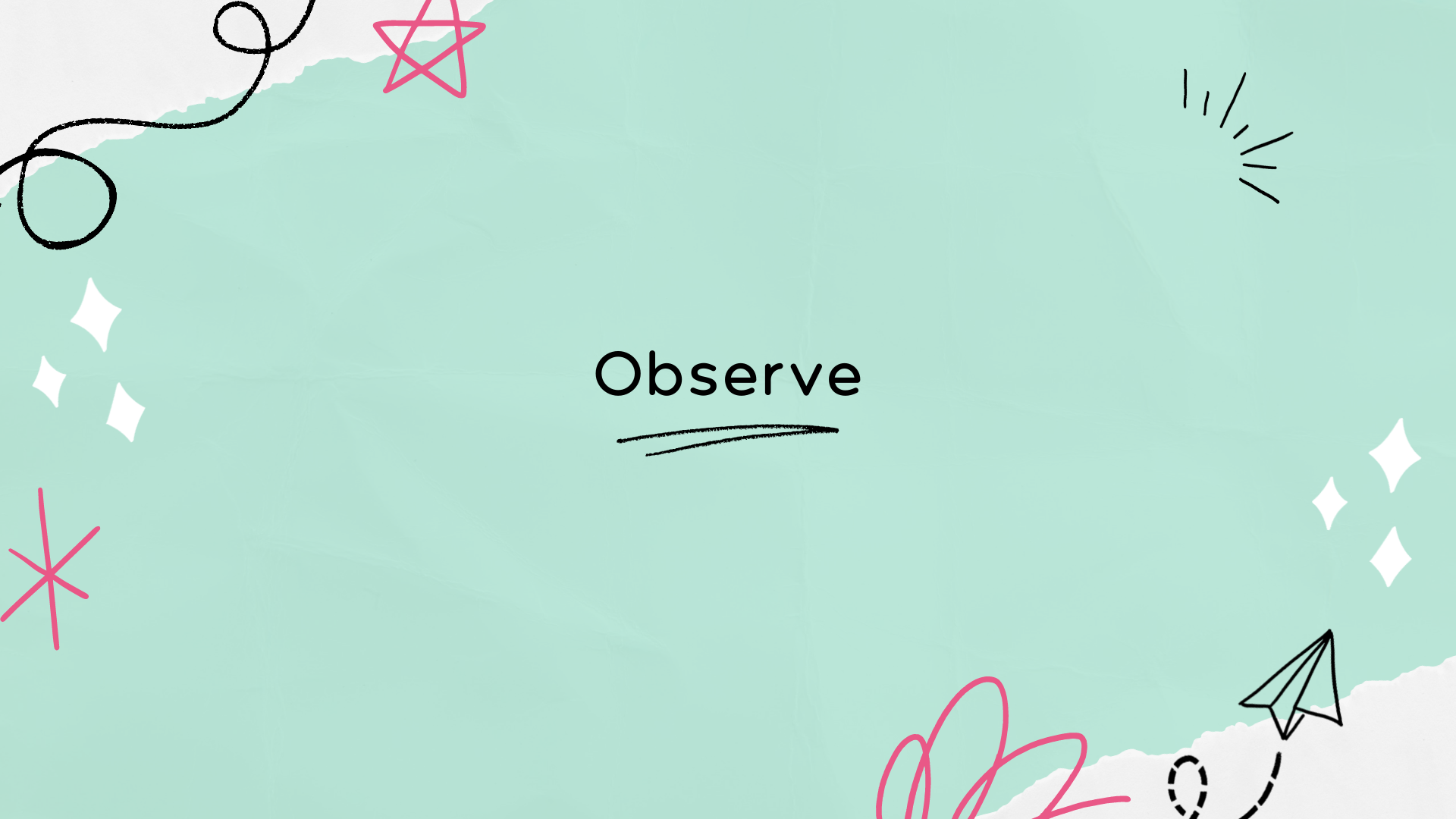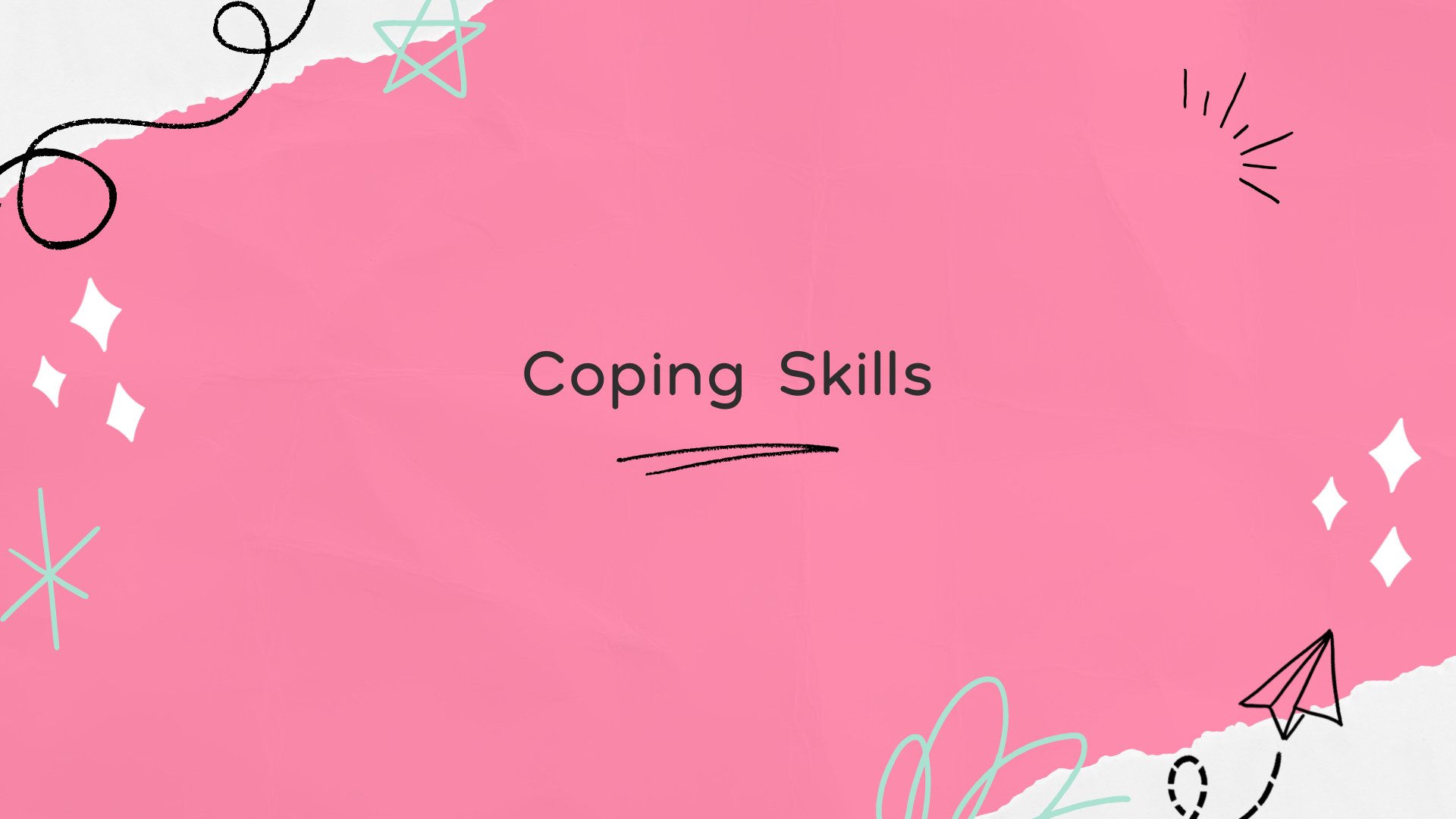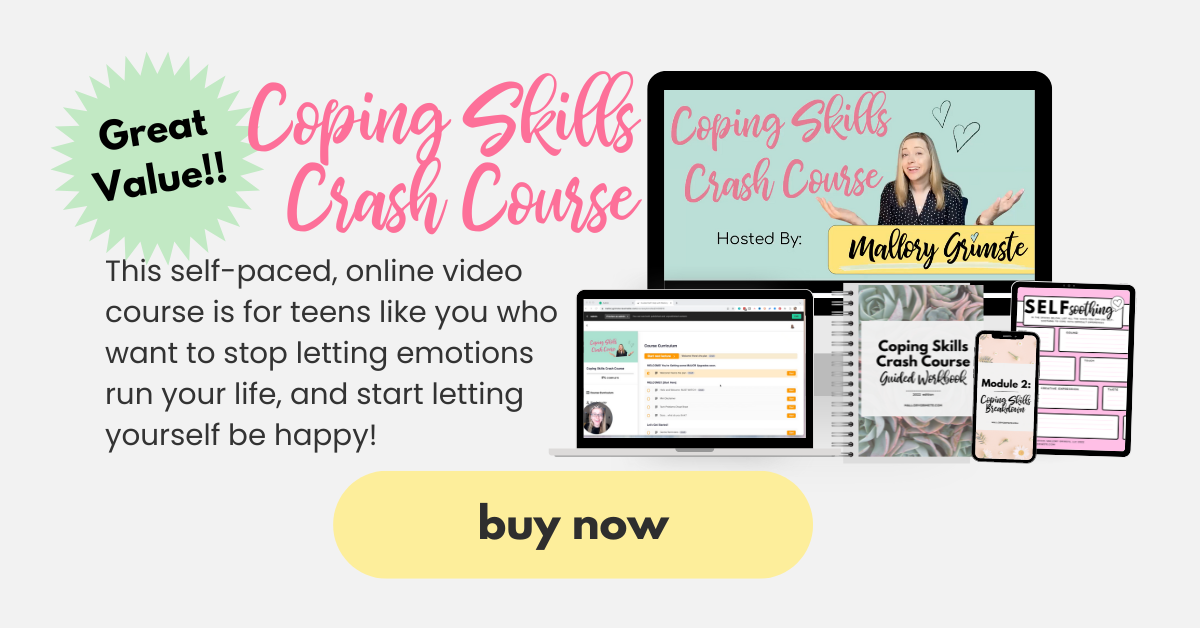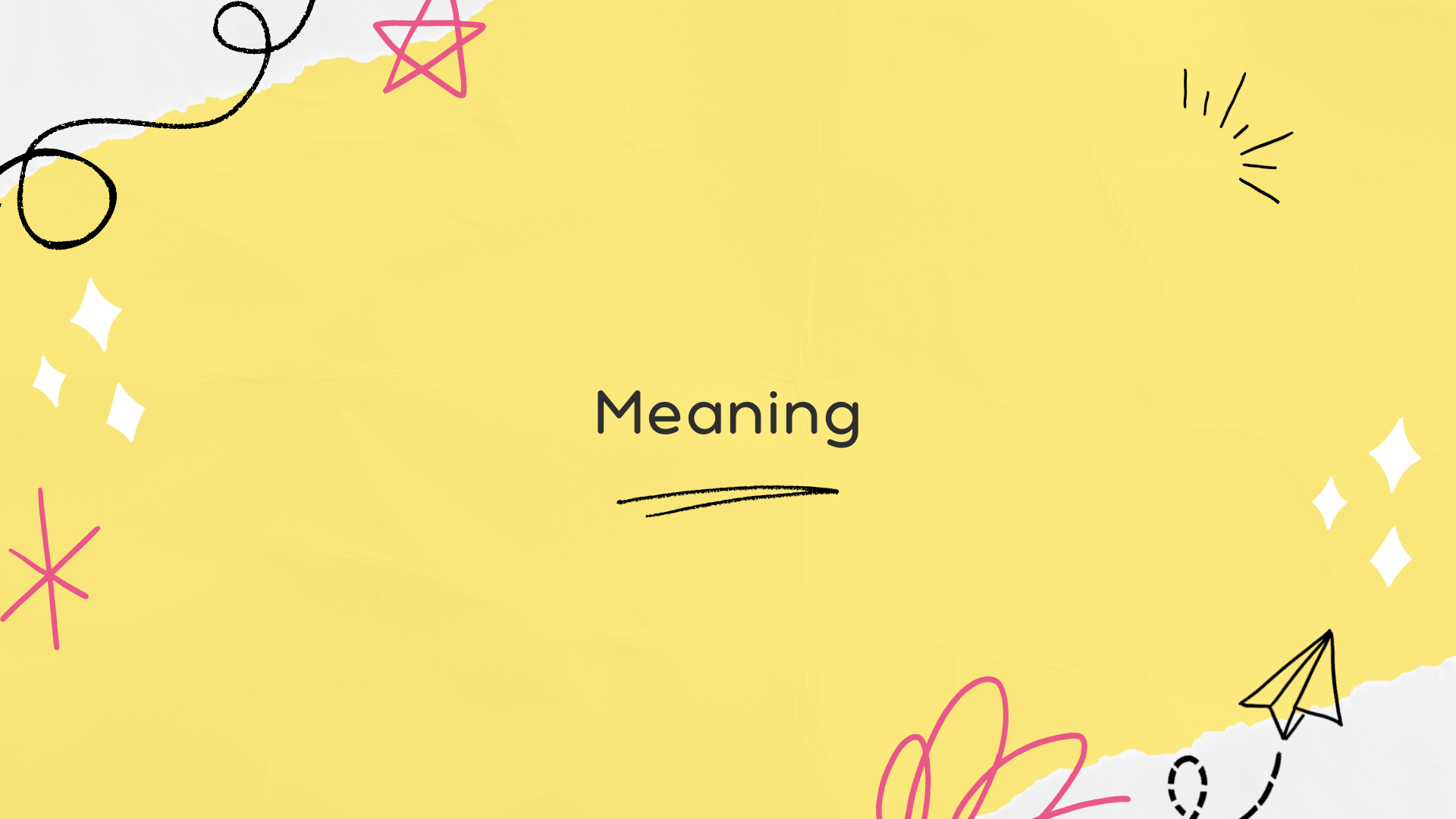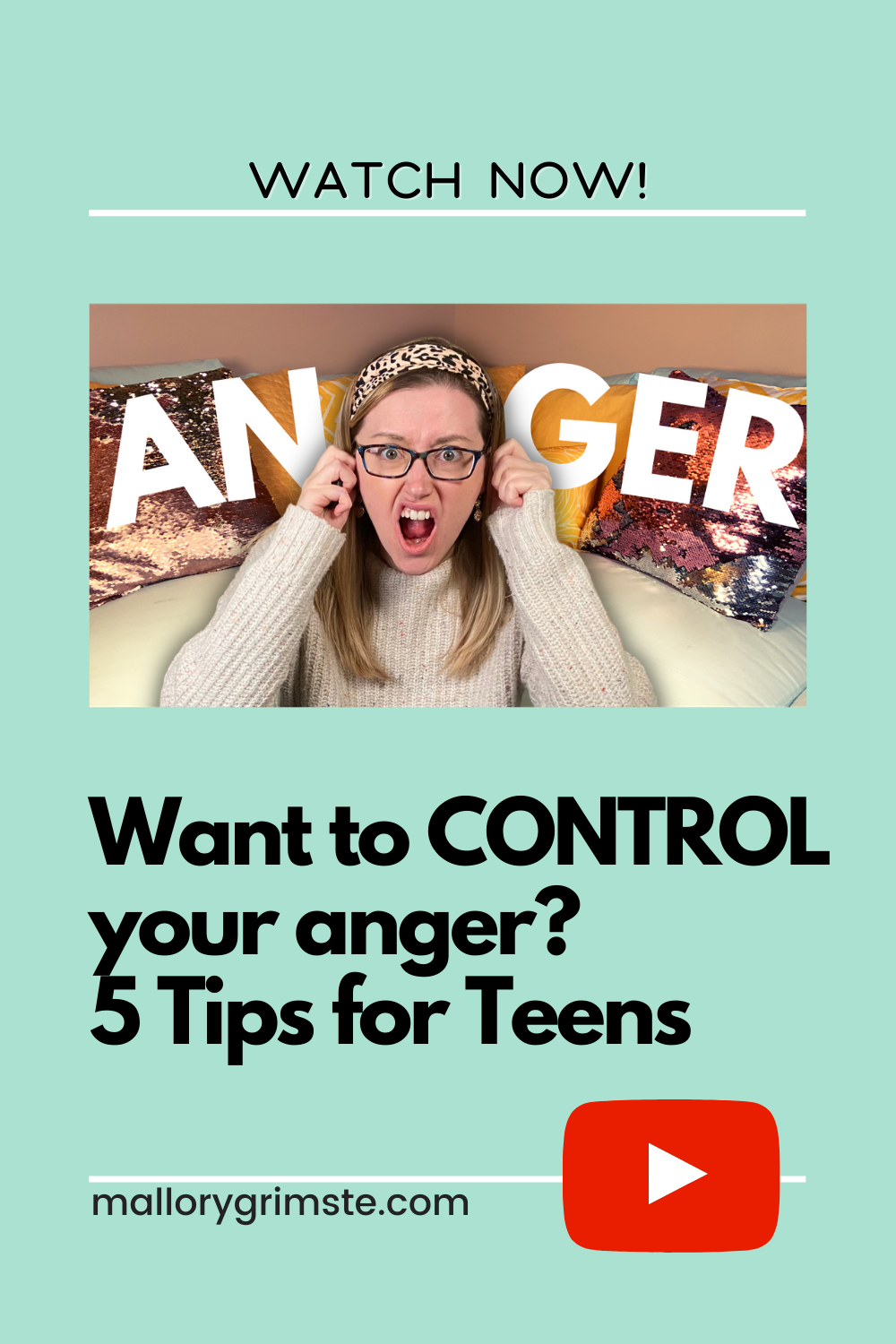You already know that anger is a really useful emotion, especially if you watch my video about how my Client EXPLODED in Therapy.
I actually really love it when my kids explode in therapy, not necessarily the tension of it, but like what it represents and what it is setting up for that next phase of therapy.
But in order to do that, you have to know how to Control Your Anger.
In this video post, I’ll be sharing 5 therapist-approved tips for teens who want to control their anger.
If you prefer to watch the video, click this image here:
🔔Subscribe here for MORE videos that help teens struggling with mental health: mallorygrimste.com/youtube
Tip 1: OBSERVE
In order to control your anger, you have to first observe your anger.
1. Start by noticing and naming that emotional experience.
Most of us can physically locate and notice any physical responses that we're having to anger because it doesn't always feel great. It's usually a really strong, emotional physical experience.
So if you can pause and observe what your body's signals are, that will give you some really nice key clues which also leads into the next part of observing:
2. You want to observe the patterns that are coming up for you.
Notice if you always feel angry when you hear a certain phrase, when you think a certain thought, or when you react or respond in a certain way.
LIKE THIS VIDEO POST? I’D LOVE FOR YOU TO FOLLOW ME ON PINTEREST AND PIN IT FOR LATER!
Tip 2: COPING SKILLS
Using your coping strategies will help you to manage the anger in the moment.
Many times when we're having a very strong emotional experience, we experience what's called flooding, which means that the prefrontal lobe of your brain is literally just getting tons of signals and messages of that emotional experience.
This part of your brain is used for good judgment, decision-making, and logical thinking.
Using your coping skills or strategies can help you to literally cool down when you're feeling angry so you can get back in control and make use of some of these other strategies that I'm about to get into.
Y'all know I love my coping skills and coping strategies. They are really meant to help you hang in there through the emotional experience until it's under control.
Here are some really great coping skills to use when you are feeling anger:
→ Movement. Do some stretching, dancing, even some exercise.
→ Breathing. Make sure that you're breathing in through your nose, and then even slower out of your mouth.
→ Self-soothing strategies. So remember with the first thing I said, you need to observe your anger and locate those physical responses and patterns, that's because those are gonna give you signals about what sort of coping skills to use to reverse that emotional experience.
So for myself, I happen to be somebody who gets a lump feeling in my throat when I feel really angry. And so for me, that's telling me to pause, drink some water, and then I should be able to manage and communicate a little bit easier.
Want More Coping Strategies!?
If you are wanting some more coping skills and strategies, I really recommend that you sign up for the Coping Skills Crash Course. I'm actually in the middle right now of fully updating it. So if you get in now, you're gonna get in at that very low rate before it increases in price as I add to it and amplify the program.
3. MEANING
You already know that anger is a secondary or protective emotional experience. There's often something underneath our anger that is more intense or more strong, meaning that it might be more uncomfortable than anger feels.
So anger can be protecting you from hurt, it can be protecting you from shame, it can be protecting you from embarrassment, anxiety, depression. This is one of the reasons why in teenagers, irritability and anger are considered a sign or symptoms of a Major Depressive Disorder.
So if you can pause after you have observed, use your coping skills and now try and ask yourself “What is the purpose or meaning of this anger? What is it trying to call my attention to?”
Oftentimes, it's letting you know that whatever is happening feels really important and meaningful to you based on your current experience of the situation.
So if you can figure out what that meaning is, it will really help you with this next strategy about communicating what your anger is actually trying to help you express.
4. EXPRESS
Once you've cooled down, you've observed, you've used your coping skills, you now know why or what the meaning is, or the purpose is of your anger, you can express it in a much more meaningful and effective way that is going to help you keep and maintain healthy relationships with others.
WANT TO REMEMBER THESE TIPS? DON’T FORGET TO PIN IT!
This is hugely important when you're a teenager because y'all are still really dependent and reliant on the adults in your life.
I mean, even when you are an adult, there is some interdependency on others, but not to the same extent as when you are a teenager.
So being able to appropriately, accurately, and effectively express your emotional experience of the situation and why that felt so strongly for you is going to:
→ help you build those relationships
→ help other people understand you
→ help other people recognize and validate your experience too.
5. ASK FOR HELP
So after you've done all of this, oftentimes it’s common to feel overwhelmed by the entire experience.
And so asking others for help, support, or guidance in how to navigate that moving forward, or what could be done differently to avoid the situation from happening again is key here.
That's why in next week's video, I'm gonna be sharing how to ask for help as a teenager. So you definitely don't wanna miss it, it's gonna be right here when it’s ready: mallorygrimste.com/youtube
IF YOU ARE CONCERNED THAT YOU, OR SOMEONE YOU KNOW, MAY BE CONSIDERING KILLING THEMSELVES, PLEASE CONNECT THEM WITH HELP.
SUICIDE PREVENTION LIFELINE
1-800-273-8255
✨ Call 24/7 ✨

